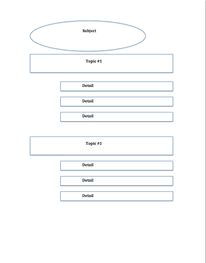|
The most recent Blogs at Linguistic Foundations have been related to developing a strong relationship between a Family and Teachers. As a parent, you know your child from a perspective that your child’s teachers don’t have. Your input paints a full picture of your child – teachers need to know this information. Teachers need to keep parents informed on the types of teaching strategies they are using and how a child is progressing. This way, parents can carry over these strategies at home. It definitely needs to be a Team Approach! Both Parents and Teachers should be communicating on a regular basis when a child is struggling. Parent-teacher meetings and a Student Support Team-child study group (mentioned in the January 8th Blog) are necessary ways to keep updated. Hopefully a struggling child has had a chance to be exposed in the classroom to differentiated teaching strategies – which are geared to her particular strengths and weaknesses. If these strategies in the classroom are not making a difference, then a Special Education referral may be an option to consider. The Special Education process is clearly set up. In Massachusetts, there are both state and national guidelines as to how it should work to help your child. The process is set up to help your child, but it can be complicated – for Parents and Teachers alike! A Parent’s Guide to Special Education can really help clarify this important process and prepare you to participate fully! The Guide was published together by the Federation for Children with Special Needs (FCSN) and the Massachusetts Department Elementary and Secondary Education (DESE). A Parent’s Guide to Special Education explains in user-friendly language how the Special Education Process works. It can help to provide Parents with the understanding of all the steps involved and can even be a reminder for Teachers. Please access this guide in the PDF file included here. I welcome your feedback to this Blog and any other entries. If you have any questions, please contact Linguistic Foundations. Additionally, we can speak directly with concerns you may have about your child’s language and literacy skills. Thank you very much!
 What is the process that can lead your child to receive the type of instruction that she needs to be successful? Be A Part of Your Child's Learning A school should have a system in place to help this to happen, but as a parent, the process can seem confusing (sometimes it is even confusing to the teachers involved). It is always crucial that you are an active part of your child’s teaching team. This is especially true if she is struggling. I have mentioned in past Blogs that you should speak with your child’s teachers – classroom teacher, paraprofessional, physical therapist, speech-language pathologist, and any other staff member who works with her. Build a relationship; learn how to carry-over what is happening in the classroom; and inform the teachers about all that you know. In this way, you become an active member! Differentiated Instruction Ideally, you hope that your child’s teachers recognize that she is struggling and has set up some form of Differentiated Instruction as an intervention to help. That is a great first step. Differentiated Instruction is teaching geared to your child’s strengths and weaknesses. An expert teacher will have a deep understanding of different teaching strategies that can help many types of learners and will be able to put the best strategies in place for your child. An expert teacher will also get the help of others if s/he is not sure how best to help. As an example, a kindergarten child may have difficulty hearing sounds in words; a teacher can use blocks that slide into boxes to represent sounds (see the Blog from October 29, 2016). Her teacher may be able to pull her aside for some extra practice for 5 or 10 minutes each day to build this skill. In another example, an older student may need specific step-by-step instructions to help her understand and use a particular kind of graphic organizer, and her teacher will find time to give her that opportunity to learn and practice (see below). Many school districts have a student support team or a child study team in place. Your child’s teacher can meet with this team of specialist teachers to build a teaching plan to address her needs. The team will meet with your teacher; offer differentiated teaching strategies; and then meet again after perhaps a 6-week period. If the teaching plan is effective, it can continue, or it can be modified. You should be a part of these meetings. Politely invite yourself to be an active and productive member of a student support team, so that you can help your child with the skills she needs. I think these are important first steps that you, as a parent, and your child’s teachers can take when you first notice that your child may be struggling. Finally You may find that one intervention is all your child needs, or you may find that further discussion may be necessary. Be sure to monitor how your child is progressing and be ready to continue this discussion with your child’s teachers. Remember that a Wait-And-See Approach is probably not the best way-Be Proactive! If you have any questions, please contact us at Linguistic Foundations. And if you think you may want to have your child evaluated through us, we can speak with you, as well. Thank you! |
The Latestfrom Archives
May 2018
Categories
|
||||||



 RSS Feed
RSS Feed
